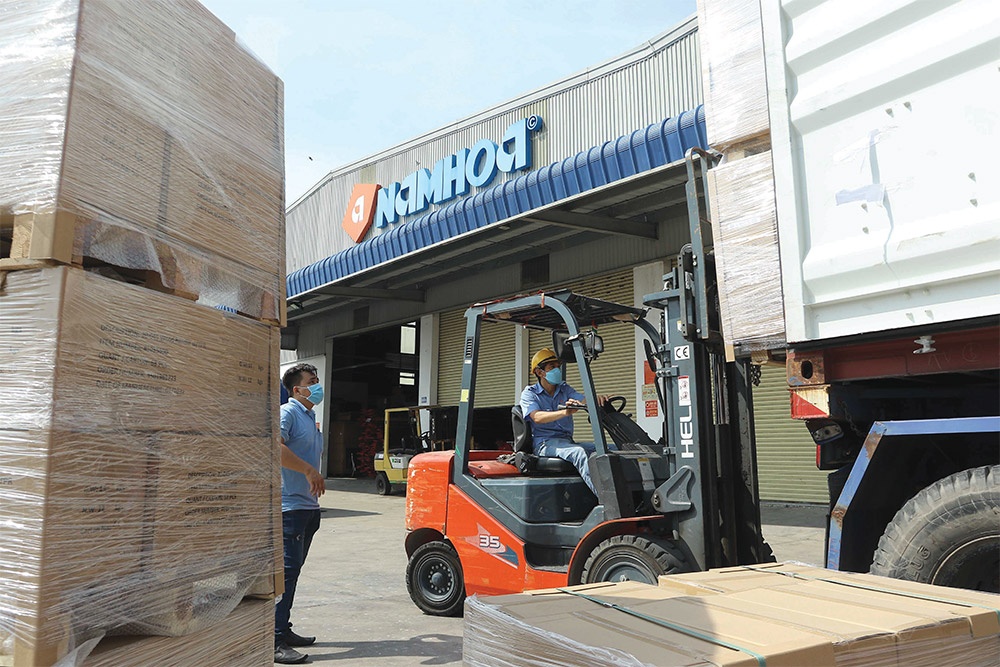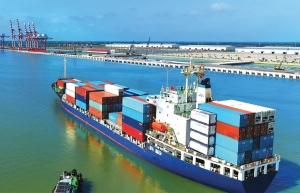EU regulations taken seriously by exporters
 |
| Investors from home and abroad are showing interest in financing sustainable agricultural ventures, photo Le Toan |
In early September, Indonesia-based sustainable farming and supply chain traceability startup Koltiva announced that it has been appointed by Vietnam-based rubber company Huy Anh Natural Rubber to help it comply with EU deforestation regulations, which mandates zero deforestation in the production of a variety of commodities from natural rubber to coffee bought or sold in the EU.
Manfred Borer, co-founder and CEO of Koltiva, said that the EU deforestation regulations represent a critical step towards global sustainability. “We assist Huy Anh by ensuring that their products comply with the requirements. Through our KoltiTrace MIS platform, we offer them comprehensive supply chain mapping, real-time risk assessment, and deforestation monitoring. This allows for precise tracking from plantation to processor, enhancing transparency and helping Huy Anh’s commitment to environmental stewardship and sustainable practices,” Borer said.
Starting this month, Huy Anh will provide rubber products that adhere to the deforestation regulations, ensuring EU customers receive products that meet the highest environmental standards. The company plans to increase its cultivation area from 3,000 hectares to 15,000ha in 2025 to meet growing global demand for sustainable products.
Vietnam is the third-largest rubber exporter worldwide, providing about 8.7 per cent of the global rubber output as of 2023. The country’s rubber industry, vital for products ranging from vehicle parts to medical equipment, aims to continue its access to the lucrative EU market.
Likewise, Phuc Sinh JSC, a major Vietnamese pepper and coffee exporter, also received a loan of up to $25 million from Dutch-based SAIL Investments via its &Green Fund in mid-August. This is &Green Fund’s second investment in a Vietnamese enterprise.
Natalia Pasishnyk, sustainability director at SAIL Investments told VIR, “Via the &Green fund, we chose Phuc Sinh because of the company’s commitment to sustainability and its strong governance practices.”
Phuc Sinh plans to use the loan to further improve its sustainable agriculture practices, focusing on creating traceable, deforestation-free supply chains. The investment will allow Phuc Sinh to expand its production, reach new international markets, and set a benchmark for sustainable agricultural practices in Vietnam, contributing to environmental conservation and more resilient livelihoods, Pasishnyk added.
Over the past few years, Phuc Sinh has boosted its coffee exports to the foreign markets, mainly to Europe. Thus, the financing from &Green Fund will help the company to meet the EU requirements on sustainable development.
Matthieu Francois, partner of Delta West, a Ho Chi Minh City-based advisory and strategic capital firm, said Vietnam’s exports to the EU accounts for 16 per cent of its export goods, making it the third-largest importer of Vietnamese products.
“Among the top 10 export items in 2023, a significant number are impacted by the EU’s Green Deal – a comprehensive set of policy initiatives aimed at achieving climate neutrality by 2050,” said Francois. “For example, the Common Fisheries Policy, part of the deal, demands a sustainable overhaul of the entire food value chain. Vietnamese fisheries must develop a sustainable system of farm operations and water usage while minimising environmental impact to meet the EU regulations, and strictly adhere to requirements on food safety and animal welfare.”
Similarly, the EU’s Carbon Border Adjustment Mechanism requires steel and iron exporters to adhere to the EU’s carbon emission standards or face a carbon price or related tax.
“To remain competitive, Vietnamese export companies must urgently implement sustainable transition strategies. Embracing these changes is essential to secure their future in the sustainability-driven market,” Francois added.
To quickly adapt to the EU regulations, companies are looking to secure new funds to facilitate the transition. Australia’s agrifood company Mavin Group is looking at developing its export markets, particularly into Europe, Australia, and the United States in 2025.
To facilitate the goal, Mavin Group and HSBC Vietnam signed a sustainability-linked loan agreement in August. The financing agreement enables Mavin Group to pursue its sustainable development journey.
In July, the International Finance Corporation (IFC) and VPBank also collaborated to provide $150 million in supply chain financing for coffee-exporting companies in Vietnam. The IFC will advise local suppliers and large buyers on sustainable finance frameworks, sustainable supply chain financing activities, and trends in green agriculture. This includes information on green agriculture certificates that meet the standards of major import markets in Europe, the US, and Japan.
Pasishnyk from SAIL Investments said that both domestic and international investors are showing greater interest in financing sustainable agriculture projects as Vietnam strengthens its commitment to green growth and environmental protection. This growing trend of green funding benefits Vietnam’s agricultural sector by enabling companies to adopt sustainable practices.
“With growing interest from both domestic and international investors in sustainability, companies that align their operations with sustainable standards and practices are well-positioned to attract financing aimed at promoting climate- and biodiversity-friendly agriculture. We consider Vietnam to be a favourable jurisdiction for this trend,” she added.
 | Import-export recovery prompts maritime growth Marine transport companies delivered strong performances in the first six months of 2024, driven by a rebound in global trade. |
What the stars mean:
★ Poor ★ ★ Promising ★★★ Good ★★★★ Very good ★★★★★ Exceptional
 Tag:
Tag:
Related Contents
Latest News
More News
- Masan Consumer names new deputy CEO to drive foods and beverages growth (February 23, 2026 | 20:52)
- Myriad risks ahead, but ones Vietnam can confront (February 20, 2026 | 15:02)
- Vietnam making the leap into AI and semiconductors (February 20, 2026 | 09:37)
- Funding must be activated for semiconductor success (February 20, 2026 | 09:20)
- Resilience as new benchmark for smarter infrastructure (February 19, 2026 | 20:35)
- A golden time to shine within ASEAN (February 19, 2026 | 20:22)
- Vietnam’s pivotal year for advancing sustainability (February 19, 2026 | 08:44)
- Strengthening the core role of industry and trade (February 19, 2026 | 08:35)
- Future orientations for healthcare improvements (February 19, 2026 | 08:29)
- Infrastructure orientations suitable for a new chapter (February 19, 2026 | 08:15)




















 Mobile Version
Mobile Version